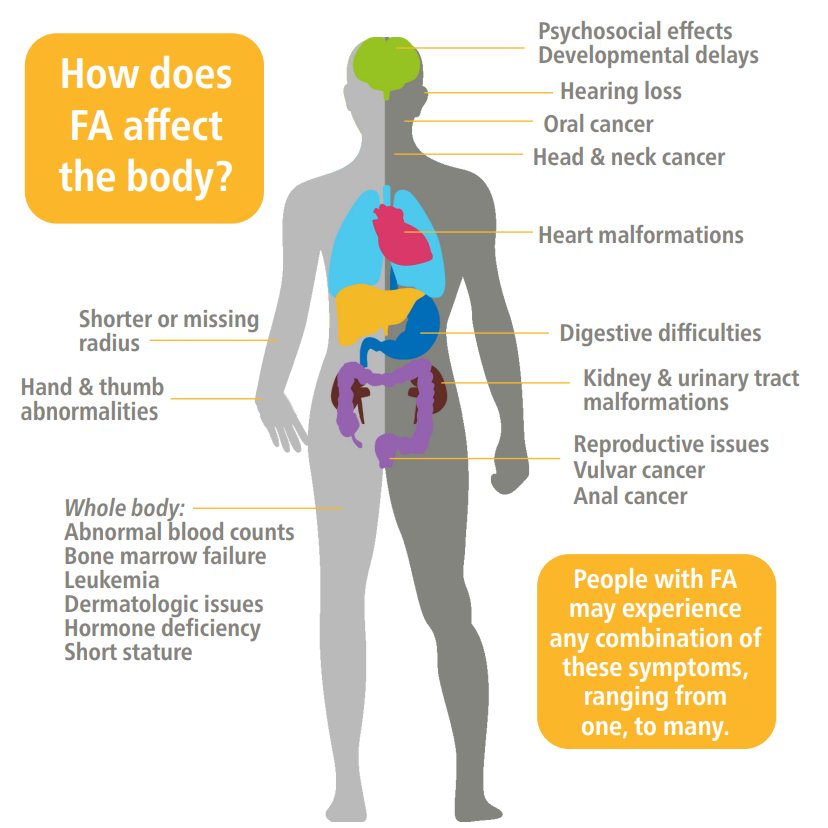- Start
- FA-INFO-KIT
- Infopool
Ansprechpartner & Unterstützung
Die DFA-Hilfe an Ihrer Seite
- Oral Screening
- Kontakt
FA-Lexicon: Basics
DNA repair & FA issues

Further chapters from „Basics“
Why „Fanconi anemia“?
Fanconi anemia (FA) was named after the Swiss pediatrician, Guido Fanconi. As early as 1927 he observed common abnormalities in three brothers and suspected that there had to be a genetic cause. Today, we know that there are various changes (or mutations) in the genetic material that are the cause of FA. In most cases, the mutations are passed from both parents.
How common is FA?
FA is very rare and at present, it is estimated that there are approximately 1-5 people out of a million people affected by FA worldwide. Mathematically, this would mean that there could be about 1000 individuals with FA in the US.

What is the underlying problem of FA?
During cell division, the damage is constantly occurring inside the cell nucleus, where our genetic information – the DNA – is stored. This damage occurs as a result of environmental influences (e.g. smoking, UV radiation) but can also occur through metabolic processes inside the body. Normally, these DNA changes are eliminated by the body’s own cell repair mechanism. This ability is impaired to varying degrees in FA depending on the type of genetic changes.
This can lead to a variety of problems, such as bone marrow failure (=poor blood formation), an increased rate of leukemia (=blood cancer), and an increased likelihood of developing cancers.
On the following pages, you will learn what you can do to set up your personal prevention program.
Science
Here you can find the scientific ressources of the App FAexam.
Intro Video
Learn here how to provide your health journey.
All Info
Here you can find all icare-infos on one spot.

